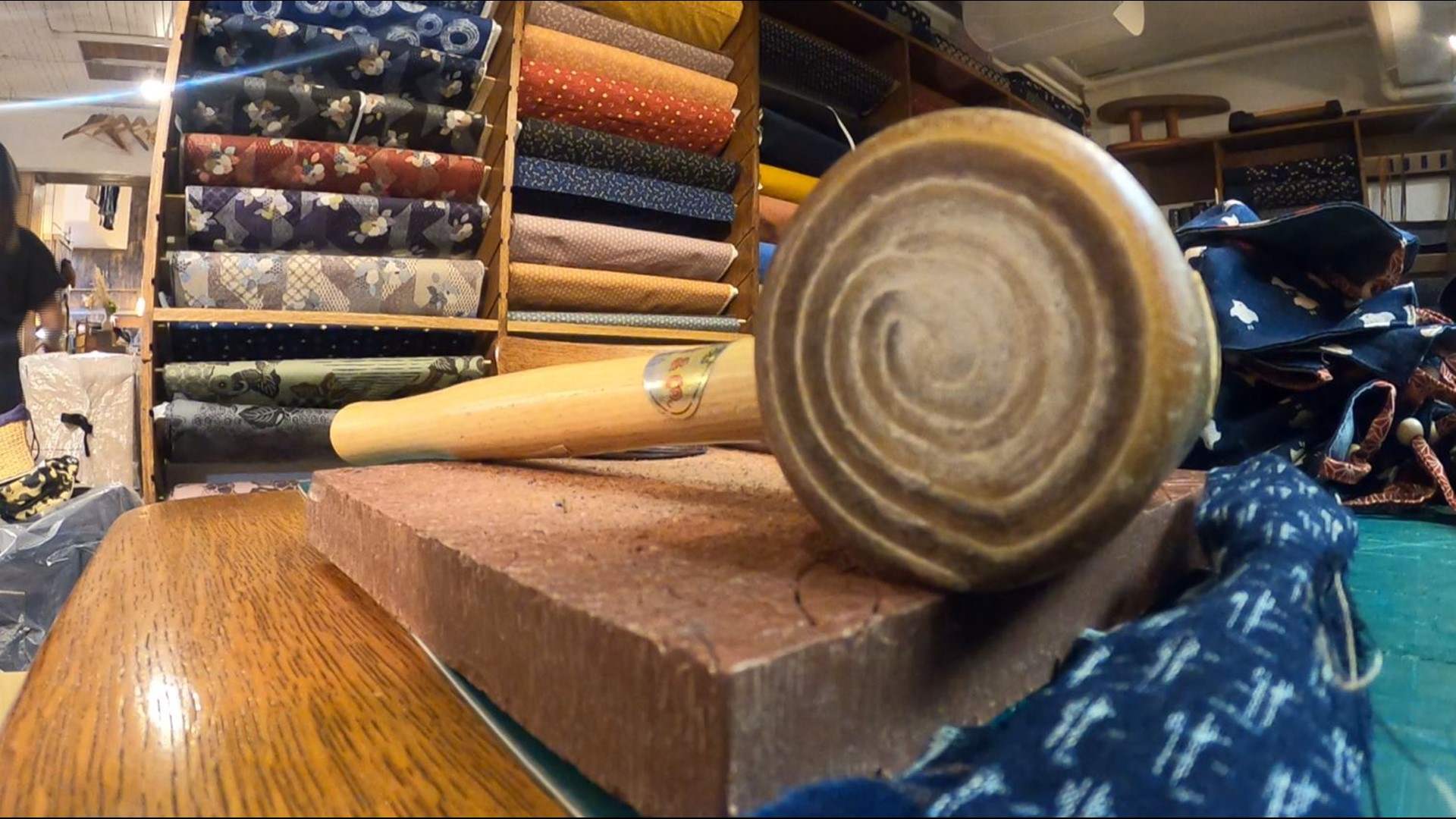PORTLAND, Oregon — The Pacific Northwest is known for being environmentally conscious, at least to some degree. Whether it's recycling, beach cleanups or riding bikes or transit, a lot of people try to reuse things and minimize waste. That's the entire concept behind Japanese-inspired store Kiriko Made (pronounced K-EAR-ee-ko) that recently opened on a very visible corner in downtown Portland.
At Southwest 10th and Morrison, across from the City Target, the bustle of the street evaporates as you step inside Kiriko Made. There are aromatherapy misters, soothing music, the smell of incense and things for the eye to take in from floor to ceiling.

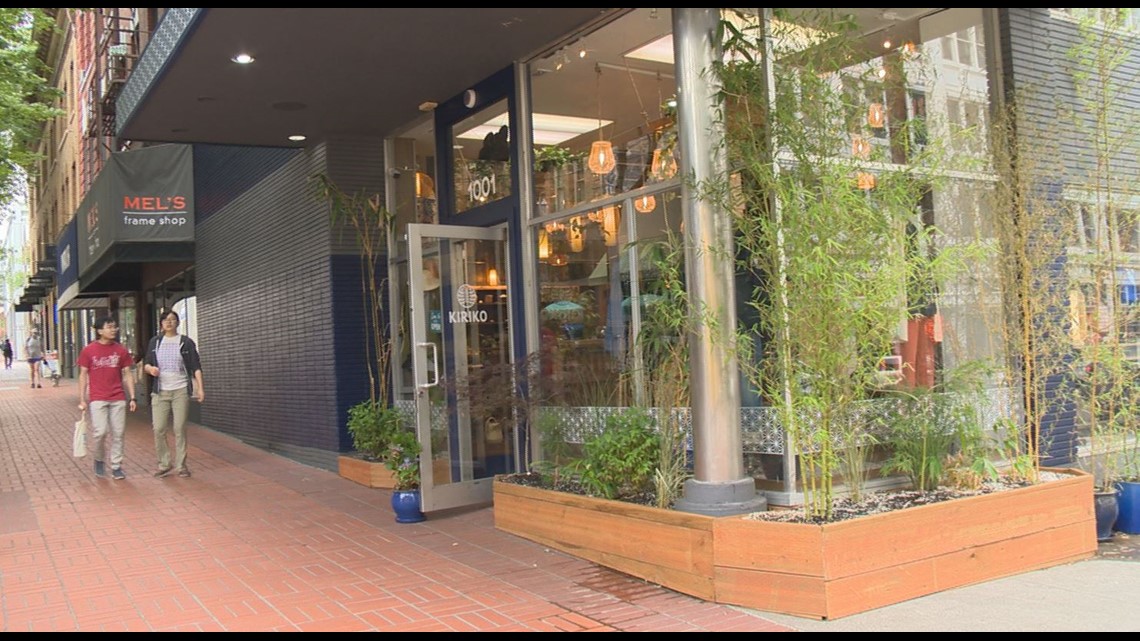
Kiriko Made is based on the Japanese word 'mottainai', meaning 'don't waste anything, use everything.' It was born out of the more than 200 years Japan was isolated as an island, from 1633-1853. Everything produced was reused and mended to not create waste in such a small area, with so many people.
Owner Katsu Tanaka is Japanese-American. He's lived in Portland 25 years and has melded his style in that 'mottainai' mentality.
"All of my clothes are usually like a used item, vintage items that's been around for a long time, or I feel that I will probably have it for years. So it's just a mindset that I'm not just like buying anything I want," he said.
Before the pandemic, Tanaka would fly to Japan to meet with fabric dealers to find vintage kimonos or meticulously hand tie-dyed pieces, where only one certain family knew how to make that design, and bring them back to Portland. Now he chooses them over videocall and has them shipped. The fabrics are used to mend pieces that might be frayed or have a hole, or added to denim.
"It's mixing up kind of Western and the Eastern cultures in merging into one to create something unique," explained Tanaka.

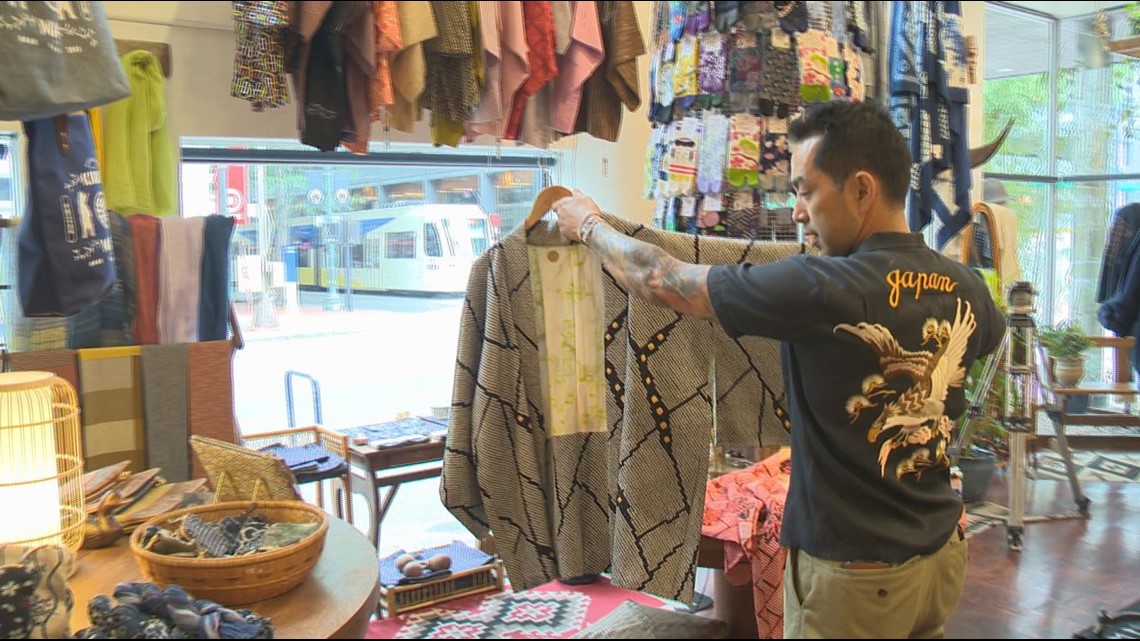
He showed an example of Vietnamese-style military jackets in a camouflage print that button up the front. Tanaka used 50-year-old-fabric to add patches along the bottom of the jacket, and different ones for pockets. Each piece and size option is unique.
"These kimono materials are not being used so much in Japan," he said as he turned the jacket around. "There's a lot of waste happening. People were just kind of burning it, or they were just throwing away. We're bringing it out, creating this and people loved it."

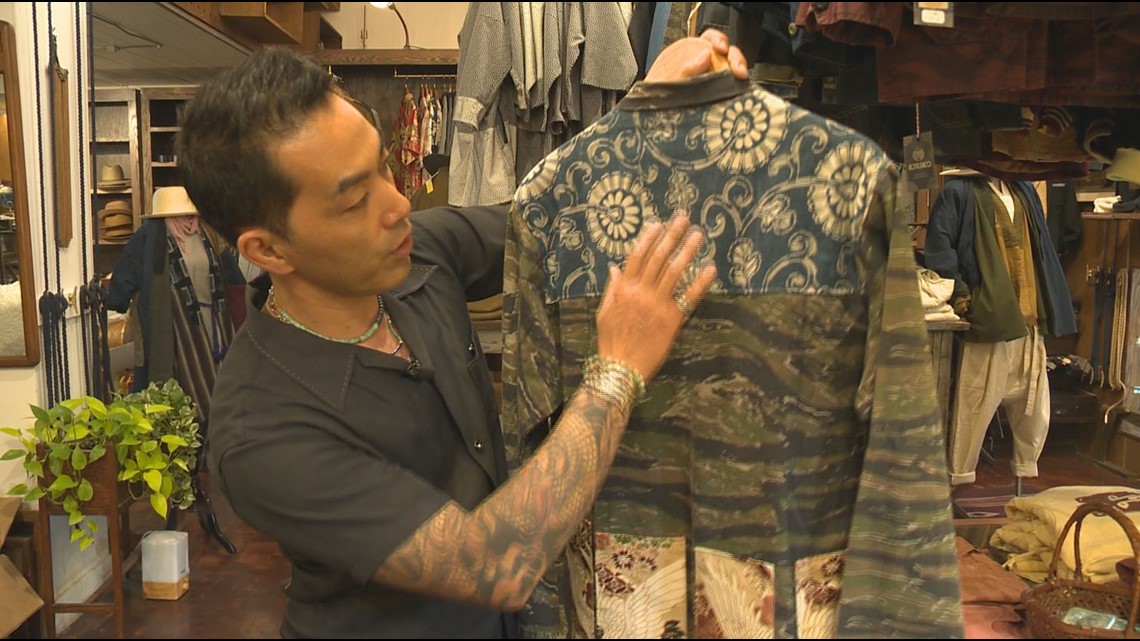
Every scrap is used. Inside the store is a workshop space.
Two employees braided leftover strips of fabric together to create hat bands that go around the crown of Panama-style hats. There are key chains, accessory bags and stocking caps. About 30% of Kiriko Made's inventory is created in-house. But there's so much more inspired by Japan: pottery, books, socks, face masks, tea pots and accessories.

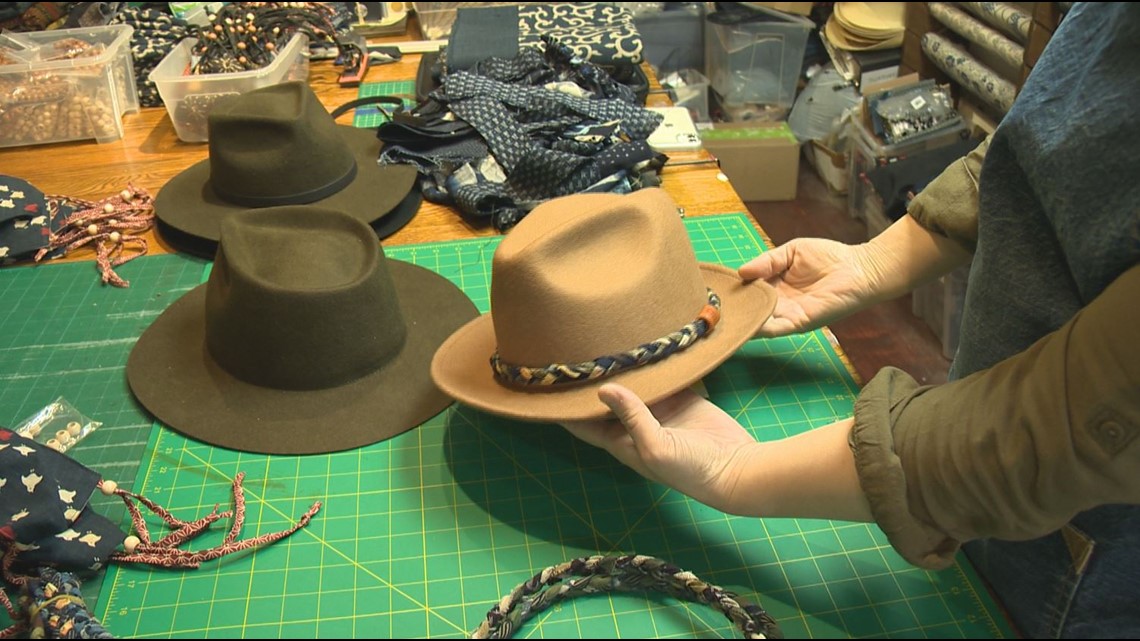
"The people really love the story behind the product and they value that story," said Tanaka. "We can buy anything online, but now we can have something that has a meaning to it."
Mottainai may be a Japanese ideology, but Tanaka doesn't know of any shops like this in Japan. This is a Portland thing, he said.
"I can't think of any other cities that if I had done this, that I could have succeeded this well."

